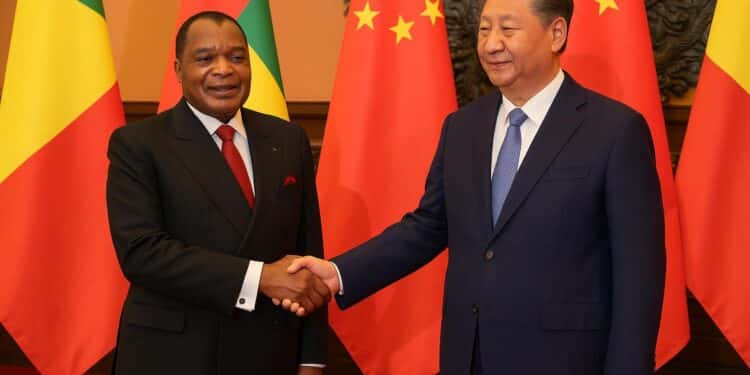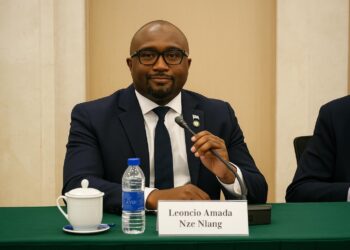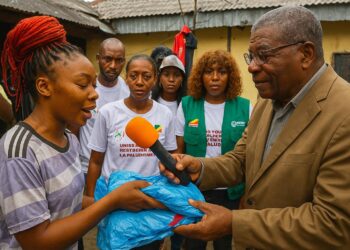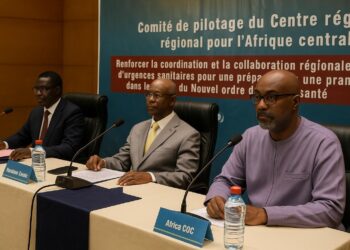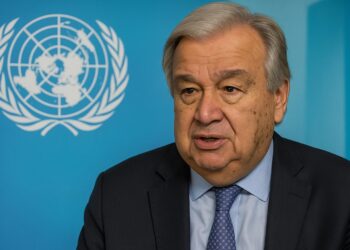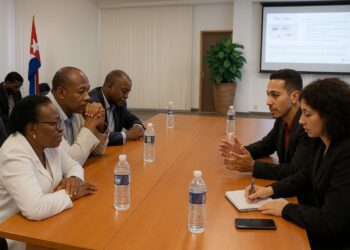Diplomatic Upgrade Boosts Strategic Partnership
On 4 September in Beijing, President Xi Jinping welcomed President Denis Sassou Nguesso during ceremonies marking the end of World War II. The two leaders elevated their 59-year partnership to “a high-level community with a shared future”, a status shared by few countries.
Xi framed the upgrade as “a model of South-South solidarity”. For Brazzaville, it crowns a decade of infrastructure cooperation that includes dams, highways and fibre networks financed by Chinese banks, underpinning about ten percent of Congo’s domestic product, according to finance-ministry estimates.
Bilateral Portfolio and Project Pipeline
Outstanding Chinese loans stand near USD 2.4 billion, servicing of which remains broadly on schedule under Congo’s Extended Credit Facility with the IMF. Both sides agreed to accelerate project completion and consider debt swaps that channel savings into social spending without breaching program ceilings.
Priority schemes include the 330-kilometre Pointe-Noire–Brazzaville highway, the Sounda hydroelectric cascade and the Kintélé smart city complex, each expected to reach critical milestones before the next China-Africa Cooperation Forum, which Congo co-chairs through 2024.
Xi’s Initiative for Global Governance Gains Brazzaville Backing
A central topic was Xi’s new Initiative for Global Governance, unveiled on 1 September in Tianjin during a regional summit. The plan complements the Global Development, Security and Civilisation initiatives announced since 2021, forming what Beijing calls a “four-pillar approach” to reforming multilateralism.
President Sassou described the IGM as “a timely contribution that strengthens the voice of the Global South”. He accepted Xi’s invitation to participate in the initiative’s steering committee, signalling Congo’s readiness to share experience in peace mediation and sustainable forestry within forthcoming thematic clusters.
Chinese foreign-ministry briefs indicate that early IGM projects will revolve around digital governance norms, pandemic preparedness and climate-finance access. All three intersect Congo’s national development plan, which foregrounds e-administration rollout, health-system resilience and monetisation of Congo Basin carbon assets.
Investor Signals from Shared Future Status
The “shared-future” designation typically unlocks priority lanes at China Eximbank and CDB. Congolese officials expect fresh concessional envelopes that could revive the Maloukou-Tréchot special economic zone and extend fibre backbones toward the borders with Gabon and the Central African Republic.
Market observers note that Beijing’s stronger political backing can also de-risk blended finance vehicles, attracting Gulf and European pension funds seeking exposure to Central African logistics and agri-processing while enjoying Chinese engineering guarantees.
FOCAC Agenda Aligns with IGM
As current FOCAC co-chair, Congo will organise sectoral meetings on carbon markets, downstream manganese and youth entrepreneurship ahead of the 2024 ministerial conference. Outcomes are expected to feed directly into the IGM work-streams, aligning continental aspirations with Beijing’s new framework.
Forests, Carbon and Environmental Cooperation
Sassou emphasised that preserving Congo Basin forests remains “a non-negotiable priority”. China signalled readiness to supply satellite data and remote-sensing hardware that enhance carbon-stock verification, a prerequisite for listing high-integrity credits on emerging Shenzhen and Singapore exchanges.
Energy, Logistics and Local Content
Talks also reviewed the 35 000-barrel-per-day Pointe-Indienne refinery, co-developed by public firm SNPC Overseas and private Chinese investors, with financing closure targeted for 2025. Parallel teams advanced feasibility on the multimodal Pointe-Noire–Ouesso corridor linking oil ports to northern timber clusters.
Officials underlined that both projects will integrate local content thresholds exceeding 30 percent, a policy meant to spur SME participation in engineering services, catering and input supplies, thereby broadening employment multipliers beyond construction phases.
Health diplomacy featured prominently. The Chinese government renewed funding for the Sino-Congolese Friendship Hospital in Brazzaville and pledged a new telemedicine wing connecting provincial clinics through 5G links supplied by Huawei, reinforcing Congo’s pandemic-response architecture and nurturing local biomedical training.
Talent and Debt Management Innovations
The leaders also endorsed 200 additional government scholarships for Congolese students in engineering, climate science and Mandarin. Alumni networks are expected to feed the emerging national agency for project preparation, bridging capacity gaps that have slowed feasibility studies in the past.
Mindful of IMF recommendations, the parties established a quarterly joint committee to align disbursements with debt-service capacity. Early drafts envisage Chinese-currency tranches and longer grace periods, innovations welcomed by ratings agencies tracking Congo’s sovereign risk trajectory.
The Central Bank of Congo and the People’s Bank of China will study using the digital yuan for timber and crude settlements, a step officials say could lower transfer costs and diversify reserves.
Shanghai Business Dialogues Deepen Commercial Links
Sassou’s Shanghai leg featured roundtables with the municipal commission of commerce, the China-Africa Development Fund and consumer-tech conglomerates. Commitments worth approximately USD 480 million were tabled, pending environmental and market due diligence over the next six months.
Executives highlighted Congo’s streamlined tax code adopted in 2023, which cuts profit-based levies for agribusiness pioneers to 15 percent over five years. They also praised faster customs clearance at Pointe-Noire’s container terminal following digitalisation supported by a Chinese logistics software suite.
Prospects for Integrated Cooperation
Analysts conclude that the upgraded partnership and the nascent IGM may shift cooperation from isolated mega-projects toward integrated portfolios blending infrastructure, digital and climate components. Effective delivery, they insist, will depend on Congo’s forthcoming presidential task-force charged with monitoring performance indicators.

































